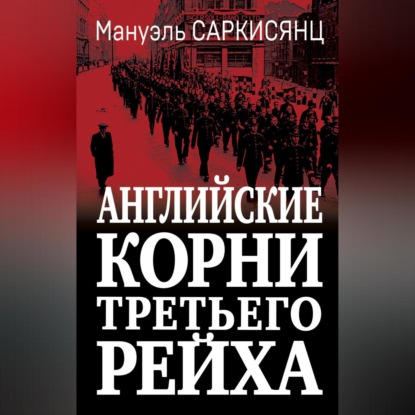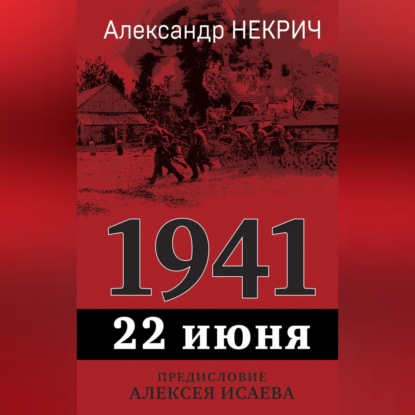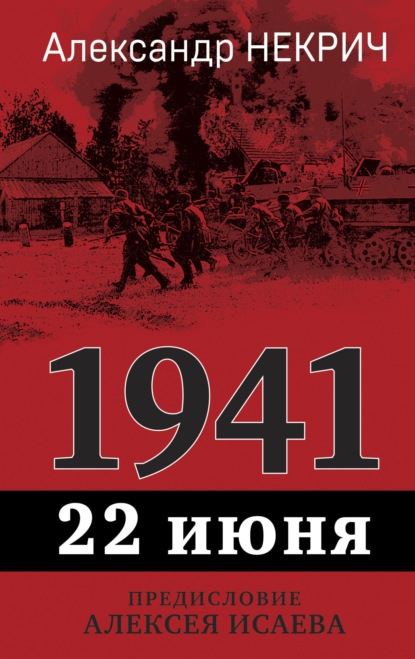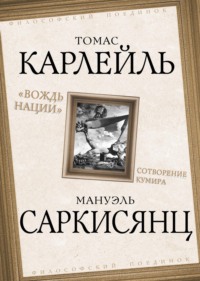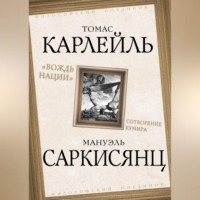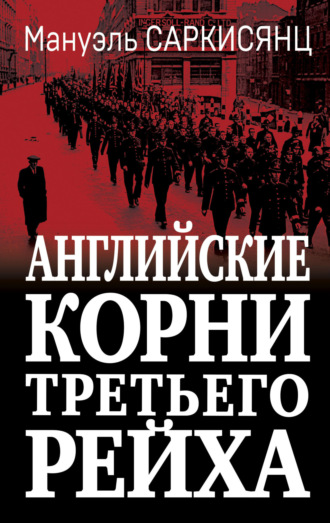
Полная версия
Английские корни Третьего Рейха. От британской к австро-баварской «расе господ»
11
Anglo-German Review. II. № 2. 1938. January. p. 51.
12
Carlyle, Critical and Miscellaneous Essays, \bl. V (Boston, 1838), p. 17; Thomas Carlyle, Latter-Day Pamphlets, p. 55. Edition of Michael Goldberg and Jules Seigel (Canadian Federation for the Humanities, 1983), quoted by Chris R. Vanden Bossche, Carlyle and the Search for Authority (Columbus, Ohio, USA, 1991), p. 138, 168; Adolf Hitler, Mein Kampf (Munchen, 1941), p. 479.
13
Rudyard Kipling, Something of Myself (London, 1951), p. 154, 157, 103, 119f, 132; R. Thurston Hopkins, Rudyard Kipling’s World (London, 1925), p. 64f; Harold Orel (Editor), Critical Essays on Rudyard Kipling (Boston, 1989), p. 221; Preben Karlsholm, ・・Kipling and Masculinity・・, in: Raphael Samuel (Editor), Patriotism. Making and unmaking of British national identity, Vol. III (London, 1989), p. 215; Hans Grimm, ・・Geistige Begegnung mit Rudyard Kipling・・, in: Das Innere Reich, October/March 1935/ 36, S. 1458, 1465.
14
«Наполас» (Napolas; Nationalpolitische Erziehungsanstalten (нем.) – созданные в апреле 1933 г. учебные заведения для подготовки нацистской элиты. В «наполас» обучались подростки в возрасте 10–8 лет; формально «наполас» подчинялись министерству образования, однако старший преподавательский состав представляли члены СА и СС. По сути «наполас» являлись кадровым резервом нацистской партии и вооруженных сил (здесь и далее, кроме особо отмеченных случаев, примечания переводчика).
15
E. K. Milliken, «The new Public Schools in Germany»: The Times (London) of 28. September 1935, cited by Harald Scholtz, Nationalsozialistische Ausleseschulen. Internatsschulen als Herrschafl smittel des Fuhrerstaates (Gottingen, 1973), S. 143.
16
J. W. Tate, «The Public Schools of Germany»: Internationale Zeitschrift fur Erziehung, VI (1937). S. 172.
17
«Белый пака-сахиб» – особо замечательный и выдающийся белый сахиб.
18
Tate, p. 172.
19
G. A. Rowan-Robinson, «Training of the Nazi leaders of the Future» (Ansprache im Chattham House, London, am 27. Januar 1938, under Chairmanship of Major В. T. Reynold, M. C, in: International Aff airs (Marz 1938), p. 237, 235, 241.
20
Гейсмейер Август (1897–?) – министериальдиректор, депутат рейхстага и офицер СС.
21
Harald Scholtz, Nationalsozialistische Ausleseschulen. Internatsschulenals Herrschaftsmittel des Fuhrerstaates (Gottingen, 1973), S. 99.
22
Volker Raddatz, Englandkunde im Wandel deutscher Erziehungsziele (о. O., 1977), p. 146.
23
Theodor Wilhelm, «Scholars or Soldiers? Aims and results of «Nazi» education»: Internationale Zeitschrift fur Erziehung, VIII (vom 5. November 1939), S. 95.
24
Лей Роберт (1890–1945), рейхсляйтер, зав. орг. отделом НСДАП, руководитель «Германского трудового фронта».
25
Harald Scholtz, Nationalsozialistische Ausleseschulen, S. 190; Price Ward, Extra-special Correspondent (London, 1957), S. 201.
26
Volker Raddatz, Englandkunde im W&ndel deutscher Erziehungsziele (n. p., 1977), p. 146.
27
Ross McKibbin, Class and Culture. England 1918–1951 (London, 1998), p. 238, 245; Т. C. Worsley, Barbarians and Philistines. Democracy and the Public Schools (London, 1940), pp. 121, 200.
28
H. John Field, Toward a Programme of Imperial Life. The British Empire at the turn of the Century (Oxford, 1982), p. 22, 35, 39; J. A. Mangan, in: John Mackenzie, Imperialism and Popular Culture (Manchester, 1986), p. 116.
29
Gerwin StrobI, The Germanic Isle. Nazi perceptions of Britain (Cambridge, 2000), p. 80, 69, 76, 82.
30
Rudolf Diels, Luzifer ante portas (Stuttgart, 1950), S. 84, zitiert in Josef Henke, England in Hitlers politischem Kalkul,
1935–1939 (Boppard, 1973), S. 22; Hitler, Monologe im Fuhrerhauptquartier (Rindlach, 1988), S. 393:6 September, 1942; Hans F. K. Gunther, Ritter, Tod und Teufel. Der heldische Gedanke (Munchen, edition of 1920), S. 96: «Ruchlose Willenstat»; Raddatz, S. 152; StrobI, p. 42, 64.
31
StrobI, p. 77, 169, 223, 69, 90, 91.
32
Johannes H. Voigt, «Hitler and Indien»: Vierteljahreshefte fur Zeitgeschichte, IX (1971), S. 33, 49; SS-General Walter Schellenberg, Invasion 1940. The Nazi invasion Plan for Britain (London, 2000), p. 27; Die Welt vom 15. August, 2000: «Operation Seelowe».
33
Raddatz, S. 143, 152, 157 (Anm 191, 192), zitiert O. Harlander, «Franzosisch und Englisch im Dienste der rassenpolitischen Erziehung»: Neue Sprachen, No. 44 (1936), S. 50.
34
Крайним проявлением этого убеждения стал религиозный англо-израильский культ, отождествлявший англосаксонскую расу с потерянными коленами Израиля. – Прим. автора. Raphael Samuel (Editor), Patriotism. The Making and Unmaking of British National Identity, Vol. I (London, 1989), p. 58; William Henry Poole, History, the True Key to Prophecy in which the Anglo-Saxon Race is shown to be the lost tribes of Israel (Brooklyn, 1880, cited in John Higham, Strangers in the Land. Patterns of American Nativism 1860–1925 (Westfort, Conn.; USA, 1981), p. 367); William Haller, Foxe’s Book of Martyrs and the Elect Nation (London, 1967), p. 87 (начиная с елизаветинских времен, эта книга считалась самой влиятельной в Англии после Библии, – утверждал Эдвин Джонс: Edwin Johnes, The English Nation. The Great Myth (1998), p. 56, 57).
35
William Blake, Jerusalem. The emanation of the Giant Albion, Chapter II, XXIV, 5: Prophetic Books of William Blake, edited by E.P.D. Maclagan and A.G.B. Russel (London, 1904), p. 31; Friedrich Brie, Imperialistische Stromungen in der englischen Literarur (Halle, 1928).
36
Alain and Cairns, Prelude to Imperialism. British Reactions to Central African Society, 1840–1890 (London, 1965), p. 238; MacDonald, Language of Empire, p. 153 f. Rutherford, Forever England. Refl ections on Race, Masculinity and Empire (London, 1997), p. 15.
37
Lord Oliver, The Myth of Governor Eyre (London, 1933), p. 115; Missionary Hymns… of the London Missionary Society (London, 1830), p. 43 as quoted in Raphael Samuel (Editor), Patriotism. The making and unmaking of British National Identity, Vol. I (London, 1969), p. 194: John Wolff e, «Evangelicalism… in mid-ninteeth century England».
38
Mackenzie, Imperialism in Popular culture, p. 33; David Brion Davis, The Problem of Slavery in the Age of Revolution (Ithaca, N. Y, USA, 1977), p. 65; Peter Marsh, The Conscience of the Victorian State (London, 1979), p. 128; Alain and Cairns, Prelude to Imperialism (London, 1965), p. 238.
39
Alain and Cairns, p. 246, 192.
40
Daunton and Halpern (Editors), The Empire and Others. British Encounters with Indigenous Peoples 1600–1850 (London, 1999), p. 365; Hill Schwarz (Editor), The Expansion of England. Race, Ethnicity and cultural History (London, 1996), p. 162; Thomas R. Trautmann, Aryans and British India (Los Angeles, 1997), reviewed in American Historical Review, Vol. CIV, No. 2 (April, 1999), p. 639.
41
Chris R. Vanden Bossche, Carlyle and the Search for Authority (Columbus, Ohio, USA, 1991), p. 137, quoting Carlyle, Collected Letters (Durham, 1970), 13: 192 and Carlyle, Reminiscences of my Irish Journey in 1849, p. 176; Robert Knox, The Races of Men (Philadelphia, 1850), 26, 216–220; 41. 89 f, 216, 253; Raphael Samuel (Editor), Patriotism, p. 196 (John Wolff e); Kathryn Tidreck, Empire and the English Character (London, 1992), p. 131.
42
Ibid., o. 257; J. M. Mackenzie, Imperialism and Popular Culture (Manchester, 1986), p. 5; Johannes H. Voigt, «Hitlerand Indien»; Vierteljahreshefte fur Zeitgeschichte, IX (1971), S. 33, 49; Sidney Ball, Memories and Impressions of «an ideal Don». Arranged by Oona Howard Ball (Oxford, 1923), p. 211.
43
George Orwell, Collected Essays, Journalism and Letters, II (Harmondsworth, 1970), p. 95.
44
Richard Symonds, Oxford and Empire, p. 55; cf. Vincent Harlow, The Historian and British Colonial History (Oxford, 1951), p. 8, 9; Dickson A. Mungazi, The Last British Liberals in Africa: Michael Blundell and Garfi eld Todd (Westport, Conn., USA, 1999), cited in American Historical Review, Vol. CV, No. 5 (December, 2000), p. 1845 f.
45
James A. Froude, Oceana. England and her Colonies (Leipzig, 1887), p. 44; Mackenzie, Imperialism and Popular Culture (Manchester, 1986), p. 41; Penny Summerfi eld, «Patriotism and Empire. Music Hall Entertainment».
46
Otto Gessler, in: Al Carthill, Die Erbschaft des Liberalismus (Berlin, 1926), S. IX; Esme Wingfi eld-Stratford, The Squire and his Relations (London, 1956), p. 92.
47
Ross McKibbin, Ideologies of Class. Social relations in Britain 1880–1950 (Oxford, 1991), p. 299, 288, 24, 275, 271 IT, citing R. Roberts, The classical Slum (London, 1974); C.F.G. Masterman, England after the War (London, 1922), p. 54 f.; A. Finkel and C. Leibovitz, The Chamberlain-Hitler Collusion (Halifax, Canada, 1997), p. 38.
48
Patricia Meehan, The Unnecessary Win Whitehall and the German Resistance (1992), p. 24; John H. Clarke, The Call of the Sword (London, The Financial News, 1917), p. 8, 15, 30 f, 33, 34, 52 f; Panikos Panayi, The Enemy in our Midst. Germans in Britain during the First World War (Oxford, 1991), p. 172–177, 180 f, quoting J. H. Clarke, England under the Heel of the Jew (London, 1918), p. 58–61, 65; Kirton Varley, the Unseen Hand (London, 1917), p. 25 f, 44 f, 49 f, 52 ff, 72, 75, 88 f; Arnolf White, The Hidden Hand (London, Septemberand October, 1917); The Vigilante of 23. February, 2., 9. and 16. March, 1918, 26. April, 1918.
49
D. S. Lewis, Illusions of Grandeur. Mosley, Fascism and British Society 1931–1981 (Oxford, 1987), p. 261 f; Robert Skidelsky, Oswald Mosley (London, 1975), p. 333; Richard Thurlow, Fascism in Britain (Oxford, 1987), p. 16; Brigitte Hamann, Hitler’s Vienna (New York, 1999), p. 404 f.
50
Margaret George, The Warped Vision of British Foreign Policy 1933–1939 (Pittsburgh, 1965), p. VIII: Preface by R. Colodny; Ross McKibbin, Class and Culture. England, 1918–1951 (London, 1998), p. 530.
51
N. Bethell, The War Hitler Won. September, 1939 (London, n. d.), p. 180; Ross McKibbin, ibid., p. V; E. P. Thompson, The making of the English working Class (1968), p. 26 f;A. Finkel and C. Leibovitz, The Chamberlain-Hitler Collusion, p. 37, 38, quoting Margaret George, The Hollow Men (London, 1967), p. 66; Ellis Wasson, Born to rule. British political Elites (New York, 2000) reviewed in American Historical Review, Vol. CVII, No. 3 (June, 2002), p. 935; Philip M. Taylor, British propaganda in the twentieth century. Selling Democracy (Edinburgh, 1999), p. 91.
52
Peter Neville, Appeasing Hitler. The Diplomacy of Sir Nevile Henderson (New York, 2000), p. IX; Ross McKibbin, p. 529, 290.
53
Richard Overy, Russia’s War. Blood upon the Snow. (New York, 1997), p. 60 f; John W. Wheeler-Bennett, King George VI. His Life and Reign (London, 1958), p. 347; Alvin Finkel and Clement Leibovitz, The Chamberlain-Hitler Collusion (1997), p. 143, 148, quoting Neville Chamberlain’s own notes.
54
Patricia Meehan, The Unnecessary War. Whitehall and te German Resistance to Hitler (London, 1992), p. 4, 389 f. (FO 371/46790, in the fi les of the Foreign Offi ce).
55
Sven Lindquist, «Exterminate all the Brutes» (London, 1996), p. 10; Schwetzinger Zeitung of 16. February, 1999: Ulrich Schilling-Strack, «Erst Lafontaine, dann Neumann».
56
Английское искусство управления государством было предметом зависти немцев, – отмечал в 1926 г. немецкий министр-демократ Отто Гесслер. – Прим. автора.
57
29 марта 1947 г. Хёсс был приговорен в Варшаве к смертной казни и несколько дней спустя казнен в Освенциме.
58
Немецкое издание этой книги вышло уже после английской публикации – в 1955 г. под названием «Elemente und Ursprunge totaler Herrschaft». – Прим. автора.
59
Hannah Arendt, Elemente und Ursprunge totaler Herrschaft (Frankfurt, 1955), p. 292; p. 177, 212 of the English version; Russland und Deutschland im 19. Und 20. Jahrhundert. Zwei Sonderwege… Herausgegeben von Nicolaus Lobkowicz… (Koln, 2001), S. 89; Charles Wenworth Dilke. The Greater Britain (London, 1894), p. 535; Herbert G. Wells, Works, Vol IV (London, 1924), p. 274; A. Toynbee, A Study of History, I (Oxford, 1935), p. 213.
60
Dietz Bering. Der Intellektuelle. Geschichte eines Schimpfwortes (Stuttgart, 1978).
61
Friedrich Lange, Reines Deutschtum. Grundzuge nationaler Weltanschauung (Berlin, 1904), S. 386f.
62
Daniel Gasman, The scientific origins of National Socialism. The Social Darwinism of Ernst Haeckel (London, 1971), p. 127, 30, 131 f, 173.
63
Joachim Kohler, Wagners Hitler. Der Prophet und sein Vollstrecker (Munchen, 1997), S. 240, 241, 245 (Anm 50), 249, 251.
64
Жозеф Артур де Гобино (1816–1882) – французский социолог, писатель и публицист, один из основателей расистской теории и расово-антропологической школы в социологии.
65
Josephs Goebbels, Samtliche Fragmente (Munchen, 1987), Teil I, S. 72f, 178: Tagebuchnotiz vom 8. Mai 1926.
66
Volkischer Beobachter vom 5. September 1925: Paul Heyes, «Contribution of British intellectuals to Fascism», in Kenneth Lunn & Richard Thurlow, British Fascism. «An essay on the extreme Right in … Britain» (London, 1980), p. 182.
67
Arnold Toynbee, A Study of History, Vol. I, p. 225.
68
Петерс Карл (1856–1918) – нем. колониальный деятель, основатель колонии Германская Восточная Африка, в 1891–1893 гг. – рейхскомиссар этой колонии.
69
Гримм Ганс (1875–1959) – нем. писатель, автор романа «Народ без пространства», широко использовавшегося в нацистской пропаганде. Долгое время жил в Южной Африке, где занимался коммерцией.
70
«Наша цель – не Данциг, – заявил Гитлер 23 мая 1939 года. – Наша цель – расширение жизненного пространства на Востоке». И это пространство на Востоке должно было стать «германской Индией». – Прим. автора.
Carl Peters, Nationalpolitisches Vermachtnis. Der Deutsche und sein Lebensraum. Herausgegeben von Hermann Bohme (Hannover, 1938), S. 46; Hans Grimm, Englische Rede. Wie ich den Englander sehe (Gutersloh, 1938), S. 7; Heinrich Himmler, Geheimreden 1933 bis 1945 und andere Ansprachen (Frankfurt, 1974), S. 78: Rede vor preusssischen Staatsraten am 5. Marz 1936; Adolf Hitler, Mein Kampf, Kommentierte Auswahl von Christian Zentner (Munchen, 1974), S. 221.
71
Hitlers Rede vom 28. April 1939: Sendungdes Deutschen Kurzwellensenders vom 28.IV.1939.
72
Adolf Hitlers Zweites Buch, Ein Dokument aus dem Jahr 1928. Institut fur Zeitgeschichte, Quellen und Darstellungen zur Zeitgeschichte, Band VII (Stuttgart, 1961), S. xiv, 181.
73
Wahrhold Drascher, Vorherrschaft der weissen Rasse (Berlin, 1936), S. 205, 208. 4a. Reinhard Spitzy, So haben wir das Reich verspielt (Munchen, 1986), S. 146.
74
Wahrhold Drascher, Vorherrschaft der weissen Rasse (Berlin, 1936), S. 205, 208. 4a. Reinhard Spitzy, So haben wir das Reich verspielt (Munchen, 1986), S. 146.
75
Percy Ernst Schramm, Erlauterungen zu: Henry Picker, Hitlers Tischgesprache im Fuhrerhauptquartier 1941–1945 (Stuttgart, 1963), S. 94. Пикер Г. Застольные разговоры Гитлера / Пер. И. Розанова. Смоленск: Русич. 1993. С. 26.
76
Jan Colvin, Vansittart in Office, A historical survey of the origins of the second World War based on the papers of Vansittart (London, 1965), p. 346; J. Sydney Jones, Hitler in Vienna 1907–1913 (New York, 1983), p. 329; Hans W. Thost, Als Nationalsozialist in England (Munchen, 1939), S. 313.
77
Percy E. Schramm, op cit., S. 135: Tischgesprache vom 22. Juli 1941, nachts.
78
Hitlers Zweites Buch, S. 165.
79
Ernst Nolte, Krise des liberalen Systems und die faschistischen Bewegungen (Munchen, 1968), S. 202.
80
Gisela Lebzelter, in: P. Kennedy & A. Nicholls, Nationalist and racialist movement in Britain and Germany bevor 1914 (Oxford, 1981), p. 160.
81
Carl Peters, Die Grundung von Deutsch-Ostafrika, Kolonialpolitische Erinnerungen und Betrachtungen (Berlin, 1906), S. 33; Carl Peters, Nationalpolitisches Vermachtnis, S. 30, 14.
82
Hans Grimm, Heynade und England. Eine deutsch-englische Familiengeschichte der Jahre 1880–1923 (Lippoldsberg, 1969), Band I, S. 83, 87.
83
Carl Peters, England und die Englander (Hamburg, 1915), S. 201.
84
Gustave Le Bon, A que se debe la superioridad de los anglosajones? (Madrid, О.J.)
85
Еще до гордого заявления Френсена, что его «малое дело стало частью… большого дела фюрера, что он, горячо любимый фюрер… ценит это и… уважает». – Прим. автора. (Френсен Густав (1863–1945) – нем. писатель.)
86
Gustav Frenssen, Peter Moors Fahrt nach Sudwest. Ein Feldzugsbericht (Berlin, 1906), S. 15; Frenssen Gesammelte Werke (Berlin, 1943), Band I, S. viii, Band V, S. 10–11.
87
M.W.L. Fos, England als Erzieher (Berlin, 1921), S. 327.
88
Maurice Cowling, Impact of Hitler. British politics and policies 1933–1940 (London, 1977).
89
Alfred Rosenberg, Der Mythus des Zwanzigsten Jahrhunderts. Eine Wertung der seelisch-geistigen Gestaltenkampfe unserer Zeit (Munchen, 1943), S. 660.
90
Дарре Рихард Вальтер (1895–1953) – с 1934 г. «рейхсбауэрнфюрер» (руководитель сельского хозяйства Третьего рейха). Автор выражения «Blut und Boden» (кровь и почва).
91
В противоположность позиции Вернера Зомбарта, назвавшего выпущенный в 1915 г. труд, посвященный полемике вокруг войны, «Торговцы и герои». – Прим. автора. (Зомбарт Вернер (1863–1941) – немецкий экономист, социолог и историк.)
92
Hans Lutzhoft, Der Nordische Gedanke in Deutschland 1900–1940 (Kiel, 1971), S. 189.
93
Hans Grimm, Heynade und England, Band III (Lippoldsberg, 1969), S. 32, IV, S. 28f; V, S. 6.
94
Ibid., III, S. 60, 137; V, S. 241.
95
Эрхардт Герман (1881–1971) – командир «морской бригады» в составе «Добровольческого корпуса», отличавшейся крайне правыми настроениями. В начале капповского путча, 29 февраля 1920 г., эта бригада заняла Берлин.
96
Ibid., IV, S. 229; V, S. 241.
97
Ibid., III, S. 32.
98
G. Strobl. The Germanic Isle. Nazi perceptions of Britain (Cambridge, 2000), pp. 223, 224.
99
Donald Seth, Jackals of the Reich. The story of the British Free Corps (London, 1973), p. 60.
100
Ernst von Wolzogen, Wie ich mich urns Leben brachte… Erinnerungen und Erfahrungen (Braunschweig, 1922), S. 327.
101
F. D. Lugard, Dual Mandate in British Tropical Africa (London, 1922), p. 616, quoted in Galinsky, «Sendungsbewusstsein der Fuhrungsschicht im Britentum»: Anglia, Zeitschrift fur Englische Philologie, Vol. LXIV, (1946), p. 327.
102
Фосс Макс В. Л. (1850–?) – контр-адмирал, автор специальных книг по морской технике.
103
M.W.L. Foss, England als Erzieher, S. 24.
104
Ibid., S. 305.
105
Цветной барьер (англ.).
106
Adolf Hitler, Politisches Testament. Die Bormann Diktate vom Februar und April 1945 (Hamburg, 1981), S. 67.
107
Walter Houghton, The Victorian frame of mind (New Haven, 1970), p. 328; Woodruff D. Smith, The German colonial Empire (Chapel Hill, USA, 1978), p. 25.
108
C. Peters, Nationalpolitisches Vermachtnis, S. 74, 10.
109
С. Peters, Die Grundung von Deutsch-Ostafrika, S. 28, 29.
110
Ibid., S. 17; C. Peter, England und die Englander, S. 226.
111
С Peters, Die Grundung von Deutsch-Ostafrika, S. 244; C. Peters, Nationalpolitisches Vermachtnis, S. 46, 32; C. Peter, Gesammelte Werke, Band i (Munchen, 1943), S. 431 nach Schmitt-Egner, Kolonialismus und Faschismus … am deutschen Beispiel (Giessen, 1975), S. 80.
112
C. Peters, Die Grundung von Deutsch-Ostafrika, S. 245, 246; Carl Peters and Wilhelm von Kardorff, Die Amtstatigkeit des Kaiser. Kommisars Dr. Carl Peters am Kilimandjaro 1891 (Berlin, 1907), S. 50.
113
Reichskolonialamt, Die Behandlung der eingeborenen Bevolkerung in den Kolonialbesitzungen Deutschlands und Englands (Berlin, 1919), S. 68–69.
114
Wilfried Westphal, Geschichte der deutschen Kolonien (Munchen, 1984), S. 255.
115
Helmut Bley, Kolonialherrschaftund Sozialstrukturin Deutsch-Sudwestafrika (Hamburg, 1968), S. 299, Anm. 339.
116
Ibid., S. 249.
117
Carl Peters, Nationalpolitisches Vermachtnis, S. 19; vgl. F. J. Schulte-Atthoff. «Rassenmischung im kolonialen System. Deutsche Kolonialpolitik». Historisches Jahrbuch (1985), S. 84.
118
John Mackenzie, Imperialism and Popular Culture (1986), p. 104, 101, quoting Spectator of 19 August 1899.
119
Horst Kuhn, Faschistische Kolonialideologie und der Zweite Weltkrieg (Ost-Berlin, 1962), S. 115, zitiert aus Hanswerner Nachrodt, Kolonialdichtung und kolonialpolitische Schulung, in Deutscher Kolomaldienst, Nr. 11 (1937), S. 19 ff.
120
Hans Grimm, Englische Rede. Wie ich den Englander sehe (1938), S. 27.
121
Johann Leers, Deutschland – Kolonialpionier Europas (Stuttgart, 1937), S. 71.
122
Drascher, Vorherrschaft der weissen Rasse (wie Anm. 4), S. 212.
123
Missed footnotetext or wrong footnotemark.
124
Basil Williams, «Cecil Rhodes». Cbersetzung von Marilies Mauk als «Sudafrika. Entdeckung und Besiedlung…» Band I (Berlin, 1939), S. 329; Mackenzie, p. 161; Raphael Samuel (Ed.), Patriotism. The making and unmaking of British national identity, Vol. I (London, 1989), p. 11.


